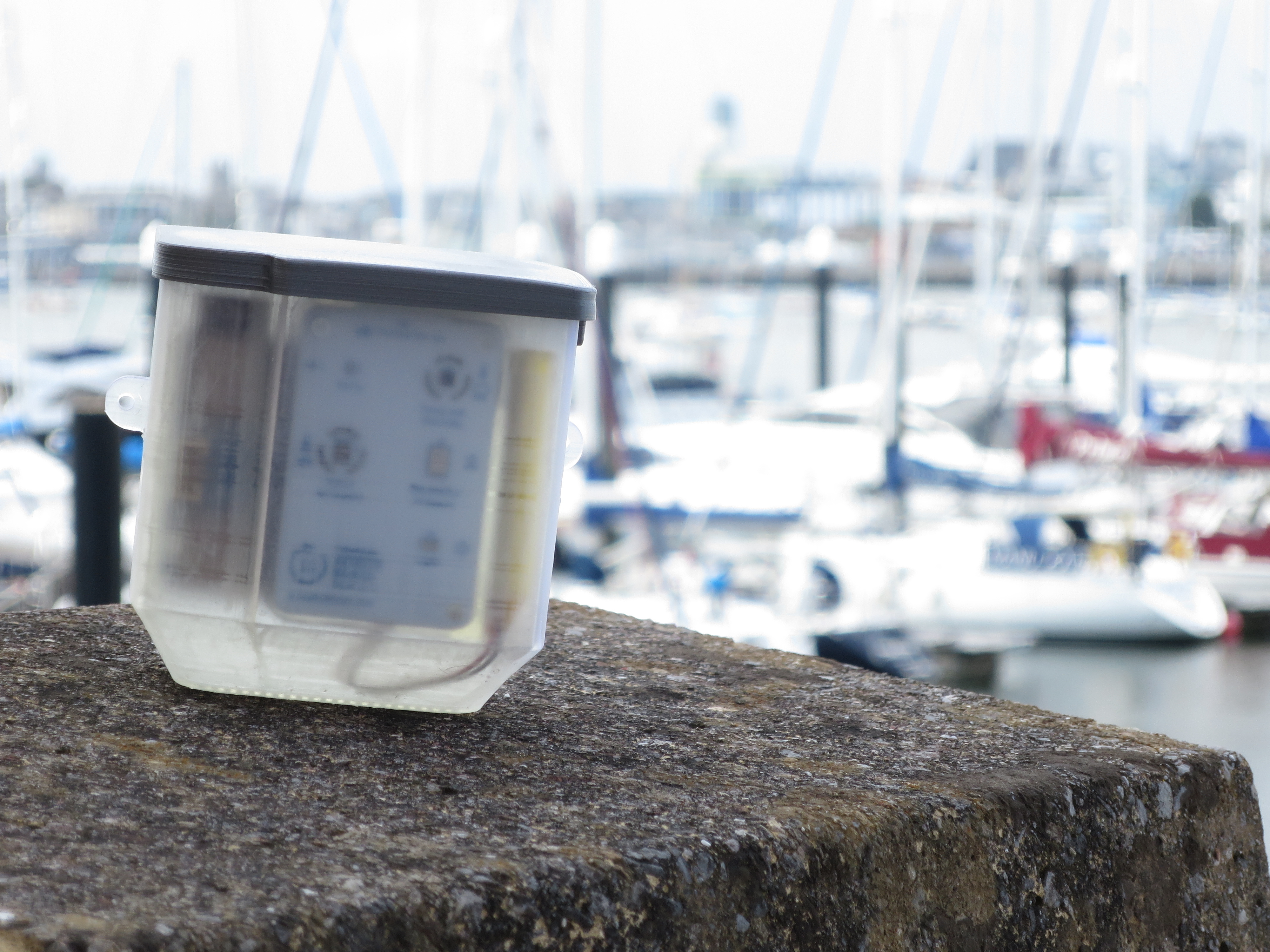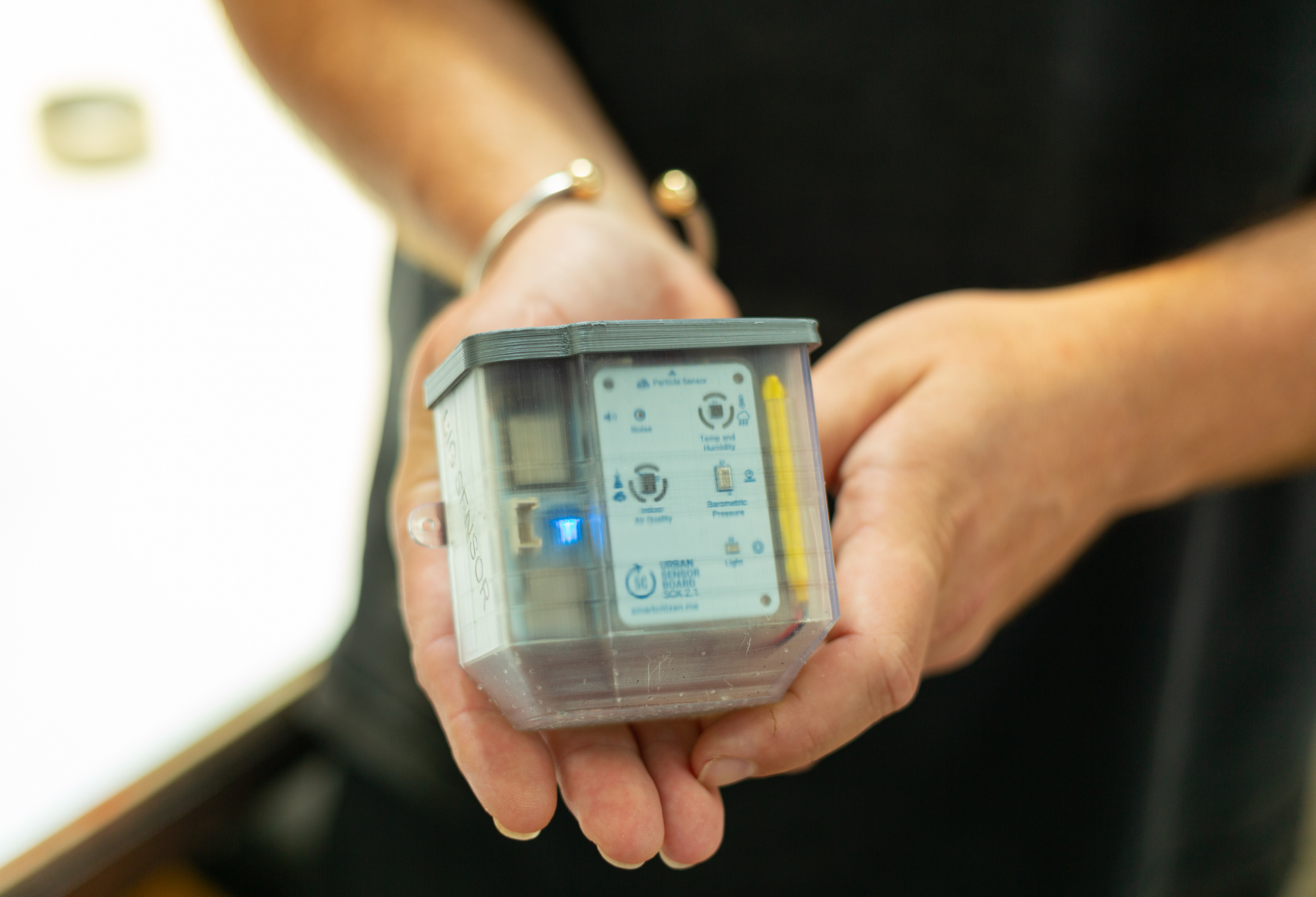Lee Nutbean has always been concerned by how sustainable we are as a city, a society and a planet.
At his core, he believes that we are consuming too much. We’re taking too much from our environment but not giving enough back.
The Smart Citizens Programme helps people in Plymouth understand that balance. It helps people measure our impact on the world around us - such as air quality, noise pollution, humidity levels and CO2 levels.
For Lee, being part of the programme based in Fab Lab Plymouth at Plymouth College of Art has been life-changing.
He became one of the first to use the Smart Citizen Kit, which gives participants the power to measure the world around them and use the data to better understand and seek solutions to environmental issues.
“We’re in a period of excessive consumption,” he explains. “We’re consuming more than what we're replenishing.
“The Smart Citizen Programme, the Smart Citizen Kit, has allowed people to do participatory sensing - taking responsibility for collecting data in your own environment. And that can be shared on a cloud system for other people to use.”
The Smart Citizen Kits were first developed as an open-source project by Fab Lab Barcelona, a digital fabrication ‘laboratory’ much like Fab Lab Plymouth - part of a network of more than 1,000 Fab Labs worldwide. They are filled with cutting-edge 2D and 3D design software and machinery that fuels innovative digital design.
The data gathered by local citizens around the world is shared with the global Smart Citizen network, helping us better understand how our world is changing.

Smart Citizen Kit sensor created by Gareth Evans (Photo credit - Gareth Evans)
Lee, a local electronics expert from Plymouth, has embraced the kit, leading six weeks of training at Fab Lab Plymouth and developing an online platform that represents the environment in Plymouth (such as sky, sun, clouds, rain, hills) using data from the sensors installed around the city by local people who took part in the training.
The result is breathtaking, and was displayed as an immersive experience at the Immersive Dome during the Full Dome festival at The Market Hall in Devonport in October 2021.
He said: “I looked at the kit and thought it was amazing. It's just user-friendly, there’s no programming involved. It was a real breath of fresh air to see something that the average citizen can use.
“If you look at the weather report for Plymouth on BBC News, at the bottom, it'll tell you the GPS of where a sensor kit is. And it's Jennycliff. So we've got one kit, that's at Jennycliff. And that one piece of kit is now giving us the air quality and weather conditions for the whole of Plymouth.
“You're humanising, socialising and visualising their data at a more participative level.”
The Smart Citizens activity has been made possible by the iMayflower project in Plymouth - which aims to build Plymouth's Creative Industries and nurture creative people power across the city.

Image credit: Ray Goodwin
Gareth Evans is one of the city’s new creatives and a local Smart Citizen who took part in the programme.
“I thought it was really interesting to be involved in a course that would allow us to install multiple weather monitoring kits and environment monitoring kits around a city.
“This data can then be used to look at what's going on in different parts of the city and possibly influence what's going on with policy making in the city.
“Following on from the Smart Citizens training course, I was able to join a subsequent course at the Fab Lab. This allowed me to develop the case for the kit that we were supplied during the first course and design and build my own.
“It taught me skills with 3D design and 3D printing and taking a design all the way through from concept to the final constructed item - and then mounting the kit on the wall at home, knowing it's in my own case.”

(Left) Local participant Gary Hannaford and his Smart Citizen Kit (Photo credit - Ray Goodwin)
(Right) Gary Hannaford demonstrates how data from his sensor is shared on the international Smart Citizen online platform (Photo credit - Ray Goodwin)
Local maker, Gary Hannaford, is a keen supporter of the Smart Citizens Programme. He created his own sensor in the six-week Smart Citizen Fab City Kit course.
He said: “I followed my father into toolmaking but left the trade due to medical problems. It is a trade I miss deeply and probably what drives me towards being a maker. The Smart Citizens Programme has been a godsend for me. It has fueled my desire to make and given me the tools to do so.
“The Smart Citizen Kit training has been great; I am inspired to delve into this world a little deeper now I understand it better.
“I loved assembling the environmental sensor and enjoyed being involved with Lee’s artwork that uses its data. This boosted my Arduino knowledge, which before the Smart Citizens Programme was limited to making a GPS Speedo to someone else’s design.
“Having a Smart Citizen sensor at my home that publishes data for others to use is brilliant. I check the outputs frequently to monitor what’s happening around me and I’m even considering expanding the station and adding a weather-monitoring system to run alongside the environmental monitor.”
The Smart Citizens Programme’s six-week training not only provided an opportunity to develop electronics and coding skills but supported participants to understand how these skills could be combined with digital fabrication to create smart objects with real-world impacts, such as environmental monitoring.
Through the Smart Citizens’ training Noa Bailey, aged 12, took his first steps into the world of electronics and coding. Noa said “I really enjoyed the course and learnt so much, including coding and processing script, electronics and 3D printing.
“It was amazing to produce something that can monitor the environment around it and create a digital landscape that shows this. I can’t wait to do the next Smart Citizens course and develop my skills in coding and electronics.”
This activity is part of the iMayflower project and has been supported by The Department for Digital, Culture, Media and Sport, who fund the Cultural Development Fund, which is administered by Arts Council England. iMayflower is led by Plymouth City Council and delivered in partnership with Creative England, Crowdfunder, Destination Plymouth, Plymouth College of Art, the Real Ideas Organisation and University of Plymouth.